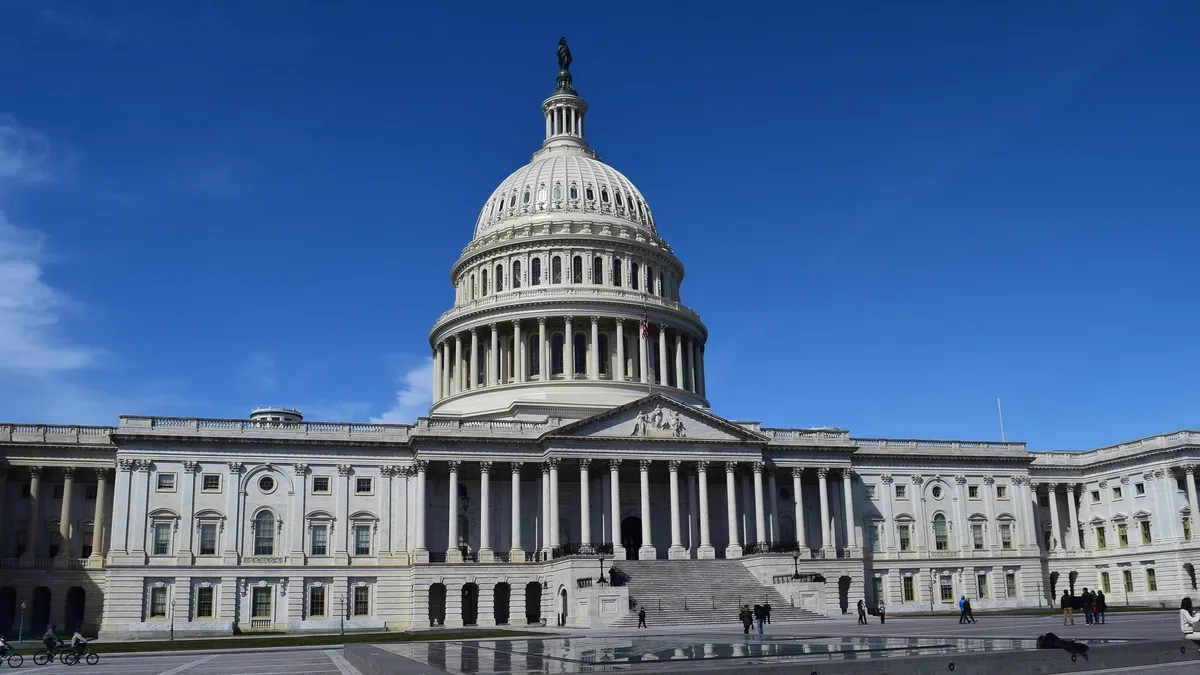UPDATE: Dec. 19, 2019: President Donald Trump on Thursday signed into law a bill that restores $255 million annually over the next decade to minority-serving institutions (MSIs) and simplifies the FAFSA, according to a press release emailed to Education Dive from the office of Sen. Lamar Alexander, R-Tenn., who is chair of the Senate's education committee.
The U.S. House of Representatives and the Senate passed the legislation last week, bringing to an end months of negotiation about how to renew the funding.
Dive Brief:
- Called the Future Act, the law renews funding for MSIs that lapsed earlier this year and primarily supported STEM education programs.
- The law pays for the funding through savings from streamlining the FAFSA and reducing paperwork for borrowers on income-driven repayment plans.
- Higher education groups have applauded the legislation, which ends uncertainty for historically black colleges and universities (HBCUs) and other MSIs over whether they could count on the funding.
Dive Insight:
Harry Williams, president and CEO of the Thurgood Marshall College Fund (TMCF), which advocated for the Future Act's passage, said in a statement emailed to Education Dive Thursday that the funding is "a smart investment in the future of our nation."
Other higher ed leaders echoed his comments. "Now the capacities of HBCUs will be strengthened and increased across the board, enabling them to carry out their missions of educating students for years to come," James Clark, president of South Carolina State University, said in the same statement.
And other groups have applauded how the bill would streamline the process for applying for and paying back federal aid, including by:
-
Eliminating as many as 22 questions on the FAFSA.
-
Reducing the number of students selected for verification, a complex process in which they must ensure they provided the U.S. Department of Education with the same information they gave the IRS.
-
Getting rid of some of the required paperwork for students on income-driven repayment plans.
There were signs the Senate's proposals to streamline the FAFSA would have trouble clearing the House. Members of the Ways and Means Committee, whose sign-off was critical, said they were concerned they would put students' data and privacy at risk, a committee aide told Education Dive earlier this month.
However, House and Senate leaders agreeing to "strengthen privacy protections" helped it through another round of review by the Senate, according to a TMCF press release.
Previously, Alexander had proposed tying the $255 million in funding to a package of eight bills that would have made several large changes to the Higher Education Act (HEA), the sweeping federal law that governs much of the federal funding for colleges and universities.
Higher ed observers have been quick to speculate about what approaches to Alexander's goal to streamline the FAFSA might mean for the long-overdue reauthorization of the HEA.
But Jon Fansmith, director of government relations at the American Council on Education, advised against "reading too much" into how that could impact the HEA. "I don't think necessarily it's a reflection that (a comprehensive HEA reauthorization) is dead, and they're going to move toward smaller bills," he told Education Dive earlier this month. "This pretty much stands on its own."










